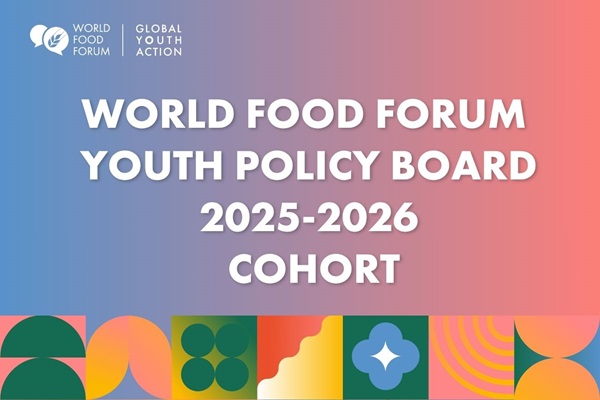Second Regional Rural Youth Forum for Europe and Central Asia
.jpg?sfvrsn=fde2f258_1)
The World Food Forum (WFF)'s Global Youth Action Initiative (Youth Initiative) is happy to share the experience of its Youth Policy Board (YPB) member Shalala Hasanova at the second Regional Youth Forum for Europe and Central Asia.
Shalala Hasanova:
The Second Regional Rural Youth Forum for Europe and Central Asia, organized by the Food and Agriculture Organization of the United Nations (FAO) Regional Office for Europe and Central Asia as part of the Organization’s 80th anniversary celebrations, took place from 11 - 13 June 2025 in Budapest, Hungary. The event gathered over 70 participants, including rural youth, policymakers, farmers, development partners, FAO staff and the civil society from 22 countries, fostering a dynamic space for regional collaboration and policy dialogue.
The Forum recognized rural youth as vulnerable due to challenges like limited land access, finance and digital inclusion and as vital agents of innovation in transforming agrifood systems. Discussions emphasized inclusive governance, intergenerational fairness, sustainable production and the need for equitable access to resources.
Representing the YPB, I contributed to Session 5 on “Policy options for the empowerment of rural youth”, highlighting how the YPB is translating its Global Youth Action Plan into regional actions. These include scaling initiatives on food loss and waste, leading youth consultations, strengthening public–private partnerships and advocating for legal frameworks for food redistribution and cooperative food chains. The work aims to support knowledge hubs, regenerative farming training and education to improve agrifood systems resilience in the region. I stressed that rural youth must co-design policies, not just participate highlighting how regional consultations surfaced challenges like land access, finance gaps, digital exclusion and intergenerational governance that directly inform the YPB’s policy proposals.
Civil society and private sector actors shared powerful examples of youth-driven innovation. These included Bari Farm from Armenia focusing on youth-led horticultural entrepreneurship, Youth for the Development of Khashuri and the FAO youth focal point from Georgia,shared civic-based rural empowerment,, Organela from Serbia highlighting regenerative farming practices, youth-led governance models from the National Youth Council from Türkiye, and General Confederation of Agricultural Cooperatives (COGECA) in Poland highlighted youth inclusion in dairy policy. Each highlighted cross-sector collaboration on cooperatives, green practices, and youth inclusion in value chains.
National delegations enriched the dialogue by sharing context-specific strategies: Montenegro discussed rural governance and forestry; Uzbekistan focused on climate-smart farming and youth inclusion; Kyrgyzstan explored rural poverty alleviation through social entrepreneurship; North Macedonia delved into cooperatives and forest sustainability; and Kosovo brought forward agribusiness incubation and youth market engagement. These diverse insights reinforced the Forum’s theme of inclusive governance, sustainable production, cooperative models and digital innovation.
A pivotal moment came when policymakers recognized youth platforms like the WFF Youth Initiative as critical to shaping national agricultural strategies, marking a shift from symbolic inclusion to concrete action. Breakout sessions enabled knowledge exchange on digital tools, inclusive marketplaces, and rural innovation.
In Session 7, the formation of a Europe & Central Asia Youth Advisory Group was proposed, with recommendations for regional policy advice, youth–government dialogue and implementation tracking. The group would include rotating membership to ensure gender, regional and sectoral balance.
The Forum reaffirmed the importance of continued engagement in shaping regional and global agrifood systems. Moving forward, Forum outcomes will inform policy briefs, regional workshops and advocacy at global fora.
The YPB remains committed to transforming dialogue into action, mobilizing networks, co-hosting regional consultations and spotlighting youth-led innovations. With a strong emphasis on intergenerational collaboration, inclusive governance and sustainable development, the Forum reinforced that rural youth are not just beneficiaries of policy but essential partners in leading agrifood systems transformation.




